The Fenty Effect on Beauty
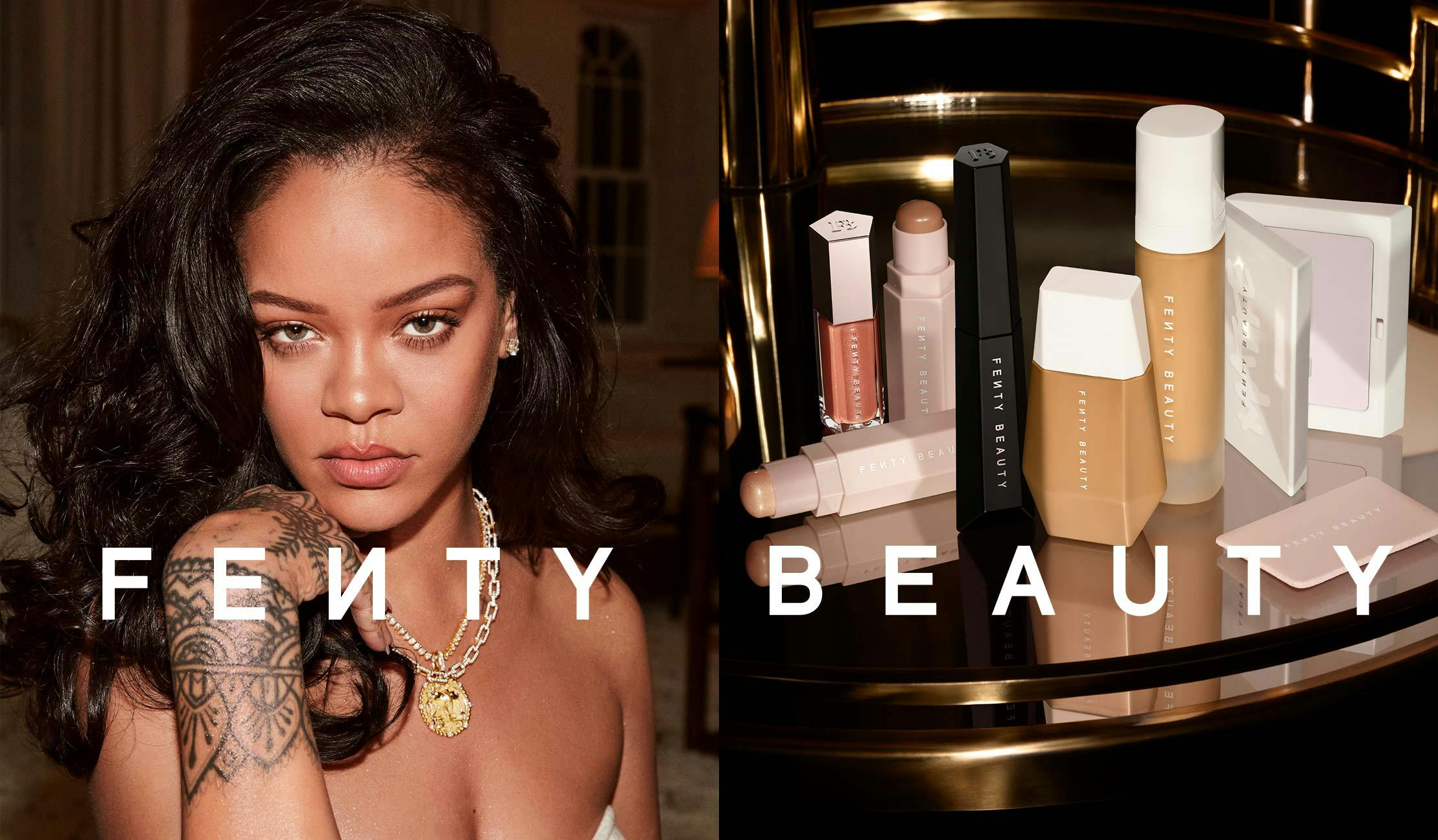
Launched in 2017 by global superstar Rihanna, Fenty Beauty disrupted the cosmetics industry with a bold mission: to provide high-quality makeup for all skin tones. The brand's rapid financial growth and cultural impact have cemented its place as a beauty powerhouse. This blog explores how Fenty Beauty’s unique business model, its identification of a critical gap in the market, innovative marketing strategies, and product formulations reshaped the industry.
Inclusivity as a Core Value From the start, Fenty Beauty was more than a celebrity-endorsed makeup line. It was built on the principle that beauty should be inclusive of everyone, regardless of skin tone or ethnicity. This vision was the cornerstone of Fenty’s business model and has fueled its rise to global success. Fenty Beauty partnered with Kendo, an incubator of beauty brands owned by luxury conglomerate LVMH. This collaboration gave Fenty the resources, supply chain, and retail partnerships it needed to scale quickly, with distribution through major retailers like Sephora and Harvey Nichols globally. Wide Range of Shades: Fenty’s flagship product, the Pro Filt’r Soft Matte Foundation, launched with 40 shades, which has since expanded to 50. This range was unprecedented at the time and addressed the long-standing issue of women of colour struggling to find makeup that matched their skin tones. Fenty prioritized both online and in-store retailing from the start.
The online store made Fenty Beauty accessible worldwide, while partnerships with major beauty retailers provided customers with hands-on experiences. While the exact figure of LVMH's initial investment in Fenty Beauty has not been made public, industry experts estimate that it was significant, with LVMH providing both financial backing and access to supply chain infrastructure. The brand generated $72 million in its first month of sales alone, capitalising on its massive pre-launch buzz. By the end of 2018, Fenty Beauty had already raked in $573 million in revenue. By 2022, the brand’s revenue had doubled due to global market expansion and new product launches.
In 2021, Forbes estimated Fenty Beauty’s total valuation at $2.8 billion, of which 50% ownership belongs to Rihanna. This valuation includes not just the makeup line but also Fenty Skin, which was launched in 2020 as an extension of the brand's ethos of inclusivity and high-quality products. Fenty Beauty’s global strategy began with key partnerships in international markets. The brand expanded into 30+ countries, including major markets like the US, UK, and Canada, and moved swiftly into Asia by 2019. In 2022, it expanded into eight African countries, highlighting a commitment to truly global beauty.
Industry Research:
The Fenty Beauty team researched consumer preferences and found that most makeup brands offered an average of 15 to 20 foundation shades, with a heavy emphasis on lighter skin tones. This left a significant market segment—women with medium to dark skin—underserved. By addressing this gap, Fenty Beauty built a loyal customer base that felt seen and valued, driving the brand’s early success.
Inclusivity as a Core Value Before Fenty Beauty, many consumers, particularly women of color, struggled to find products that matched their skin tones. Recognizing this underserved demographic, Fenty Beauty focused on providing a wide range of shades for all skin types and tones, from the lightest to the darkest. This inclusivity, combined with high-quality formulations, resonated with customers worldwide, positioning Fenty Beauty as a leader in both innovation and social impact.

Fenty Beauty’s business model revolves around accessibility and luxury, offering high-quality products at a mid-range price point. The brand launched exclusively at Sephora, leveraging Sephora’s vast distribution network, which allowed for an immediate global reach. Rihanna’s vision of making the brand accessible to everyone was realized with Fenty’s rapid expansion into over 30 countries and its continued presence in new markets, including Asia and Africa. Financially, Fenty Beauty became an instant success, generating $72 million in its first month and amassing $570 million in its first year.

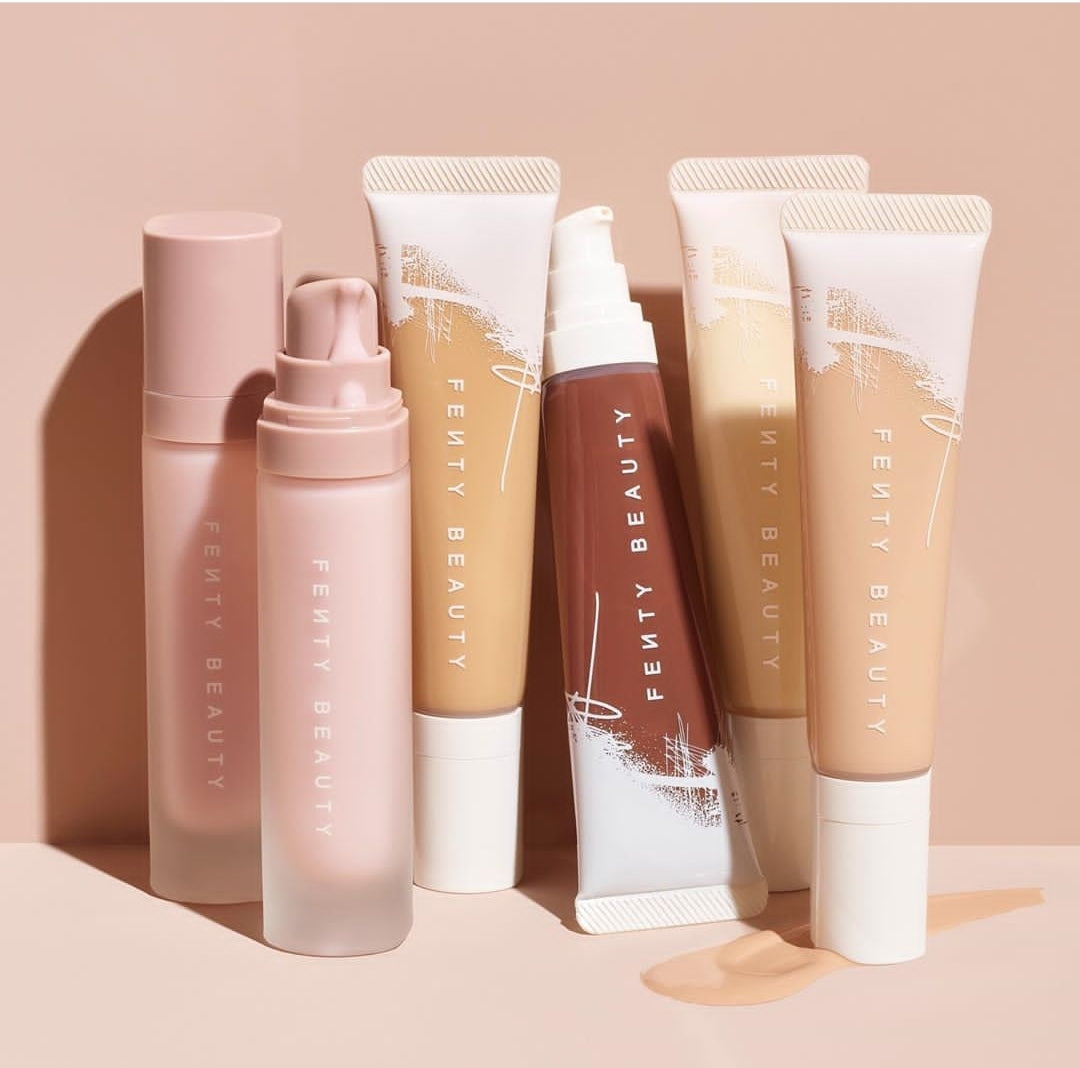
By 2022, the brand had more than doubled its annual revenue, largely due to global market expansion and successful new product launches. As of 2023, Fenty Beauty’s estimated worth exceeded $2.8 billion, making it a dominant force in the cosmetics industry. Marketing Tactics and Celebrity Influence Rihanna’s personal brand significantly influenced Fenty Beauty’s success. Her massive following on social media (over 10 million followers on Instagram) became an effective marketing tool. The brand tapped into social media trends, using hashtags like #FentyFace and #FentyBeauty, and fostering a sense of community through user-generated content. The brand also partnered with influencers and beauty bloggers, helping it connect with a wide and diverse audience.
Key Marketing Tactics: Leveraging Rihanna’s Influence:
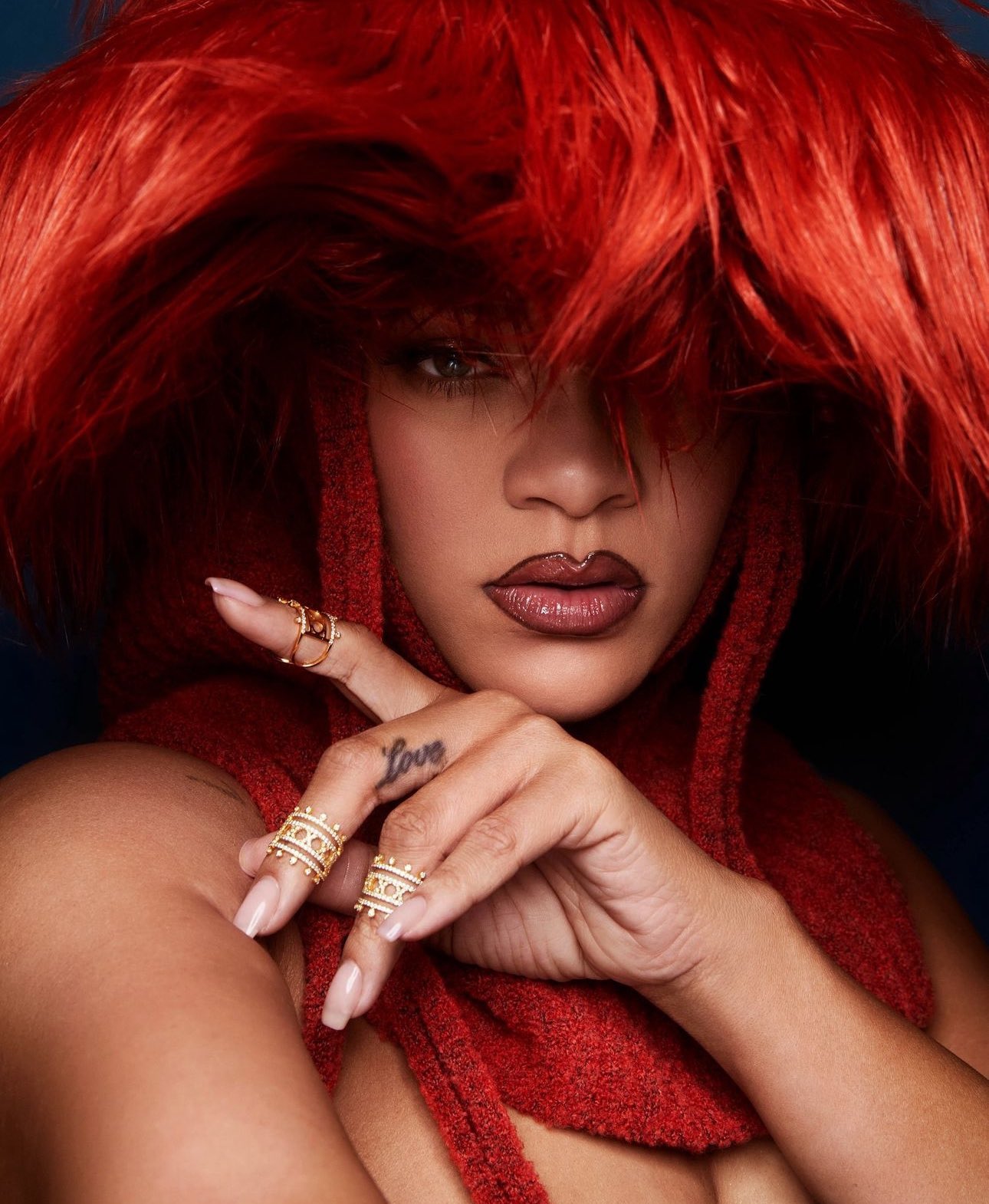
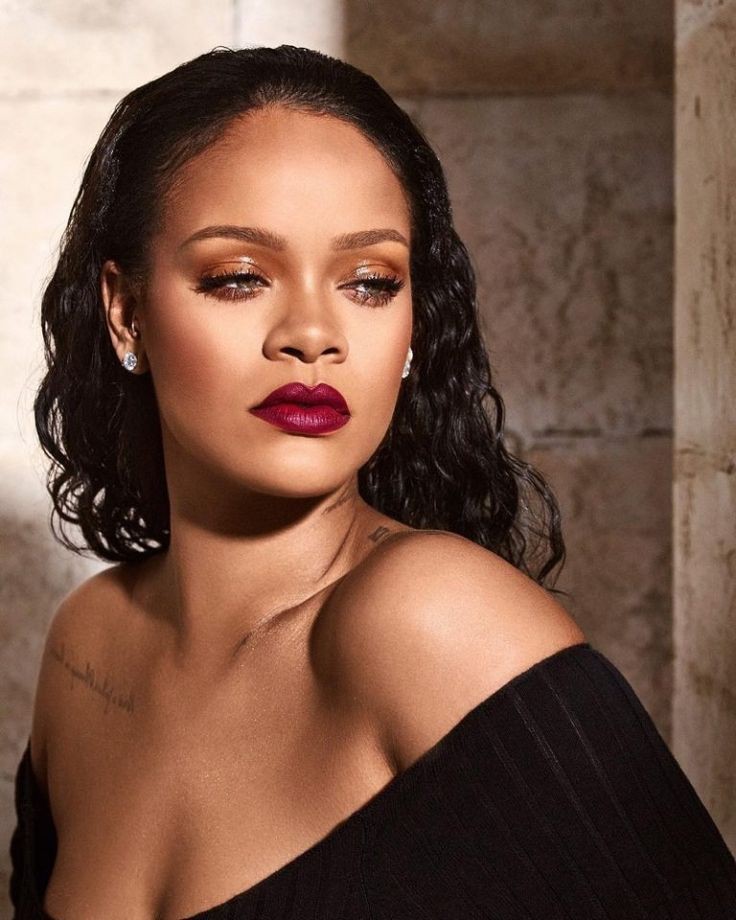
As the founder and face of Fenty Beauty, Rihanna’s global fame was instrumental in generating buzz before the brand even launched. However, the brand didn’t just rely on her celebrity status—it capitalized on her authentic connection to the brand. Rihanna was deeply involved in product development and marketing, giving Fenty a level of credibility that other celebrity-backed brands often lack.
- User-Generated Content:
Fenty Beauty encouraged customers to share their looks on social media, using hashtags like #FentyFace and #FentyBeauty. This not only built a community of brand advocates but also provided authentic content that highlighted the versatility of Fenty products on all skin types.
- Catering to a Global Audience:
Diversity as a Competitive Edge Fenty Beauty’s success lies in its ability to cater to a global audience. While many beauty brands prioritized Western markets, Fenty recognized that beauty standards vary greatly around the world. Who Did Fenty Beauty Cater To? All Skin Tones: From the very start, Fenty catered to every skin tone, making it an instant favourite among women of colour. By offering a wide range of shades, Fenty ensured that everyone—from the palest to the deepest skin tone—had a match. Gender-Inclusive: Fenty Beauty’s campaigns featured both men and women, normalizing makeup for everyone, regardless of gender.
- International Markets:
Fenty Beauty made a conscious effort to appeal to international markets by using global beauty ambassadors and marketing its products in countries outside the traditional US and European markets. By expanding its audience, Fenty broke the mould of narrow beauty standards and catered to consumers from various cultures and backgrounds.
- Influencer Collaborations:
Fenty Beauty’s strategy included partnerships with beauty influencers who reflected its core values of inclusivity. The brand worked with influencers from diverse backgrounds, many of whom had previously spoken out about the lack of shade variety from other brands. This boosted the brand’s authenticity and credibility in the eyes of consumers.
- The Fenty Effect:
The brand’s success forced competitors to diversify their offerings. Industry giants like Estée Lauder and L’Oréal quickly expanded their shade ranges to avoid being left behind. This shift, known as the "Fenty Effect," permanently altered the beauty industry, making inclusivity a new standard
Beauty for All:
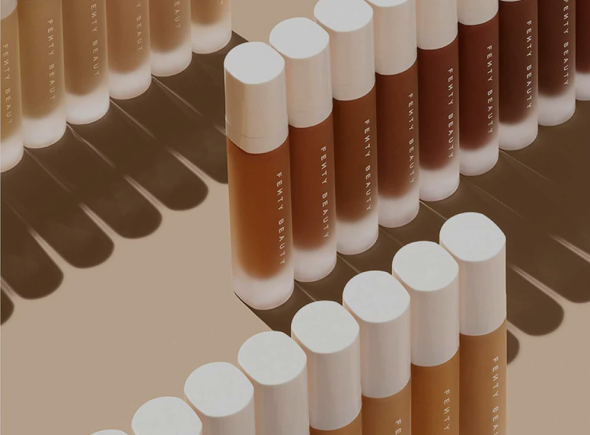
The success of the Pro Filt’r foundation range was a landmark moment in beauty history. It shifted the focus from makeup as a luxury product for a select few to a necessary self-expression tool for everyone. The brand’s wide range of foundations, bronzers, and highlighters meant that people of all complexions could finally find products that suited them. Industry Transformation: Following Fenty’s lead, other brands were pressured to rethink their approach to shade ranges. Brands like Dior and Maybelline launched broader shade collections to compete in this new, more inclusive market. The "Fenty Effect" raised the industry standard, leading to long-term changes in how beauty products are formulated and marketed.
Ingredients and Product Formulations:
Conscious Choices Fenty Beauty is not just known for its wide shade range; the brand also places a strong emphasis on the quality and safety of its ingredients. Vegan and Cruelty-Free: Fenty Beauty has consistently prioritized offering cruelty-free products. While not all of its products are vegan, the brand continues to innovate with vegan formulas, appealing to a conscious consumer base that seeks ethical beauty choices.
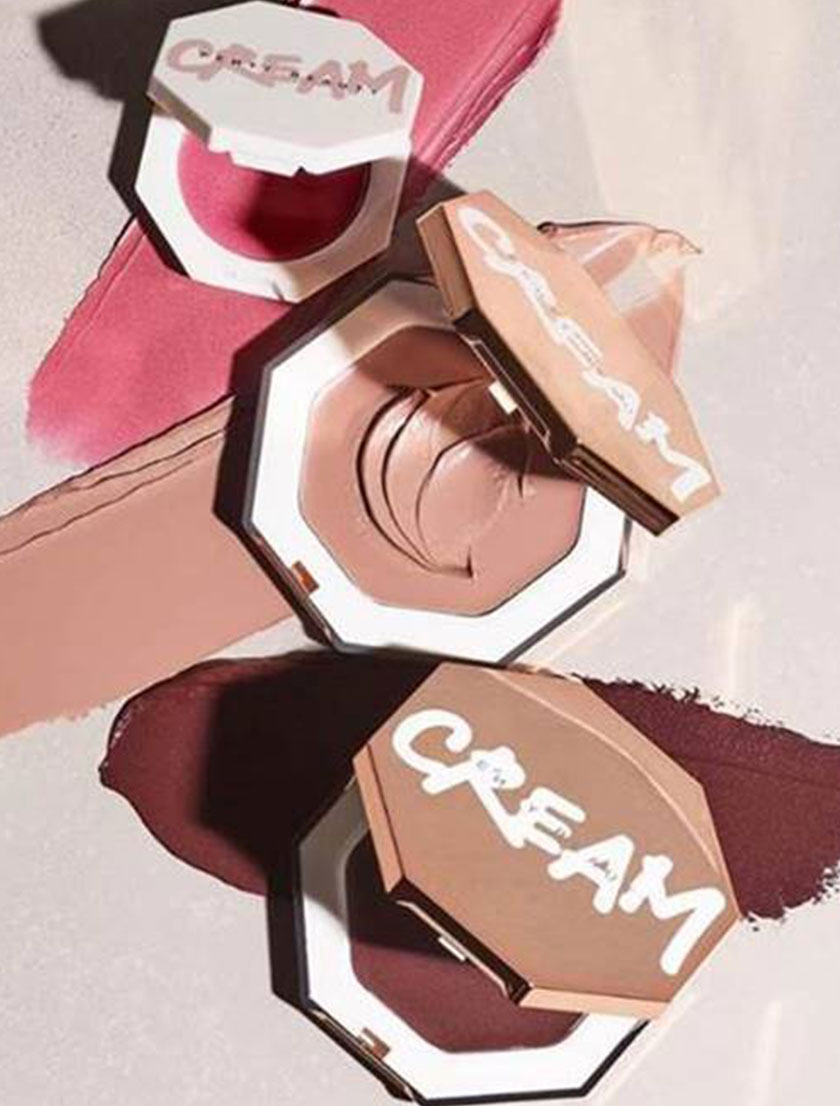

Skin-First Makeup:
The Pro Filt’r foundation, while delivering full coverage, is designed to be lightweight and breathable, non-comedogenic, and suitable for all skin types. This focus on formulations that prioritize skin health without compromising on performance has been a key differentiator for the brand.
Changing Beauty Standards:
Redefining Inclusivity Before Fenty, the beauty industry was largely focused on a Eurocentric standard of beauty. Fenty Beauty shattered these outdated norms and forced the industry to catch up.
Normalizing Diversity in Beauty:
Fenty not only addressed the need for diverse shades but also embraced beauty in all its forms, encouraging consumers to celebrate their uniqueness. This has inspired other beauty brands to be more intentional in representing diversity, whether through product development or marketing. 6. Ingredients: A Focus on High-Quality Fenty Beauty is also known for its commitment to high-quality ingredients. While the brand is not strictly labelled as a “clean beauty” brand, it takes a thoughtful approach to product formulation.

Ingredient Transparency and Focus:
Vegan and Cruelty-Free: Fenty Beauty prides itself on being a cruelty-free brand, ensuring that no products or ingredients are tested on animals. Many of its products are also vegan, appealing to conscious consumers. Skin-First Makeup: Fenty Beauty's formulas, particularly in its foundations and complexion products, prioritize skin health. The Pro Filt’r foundation, for example, is non-comedogenic and designed to be breathable while providing full coverage. The brand ensures that its formulas perform well across all skin tones and types, a crucial aspect when dealing with such a wide shade range.
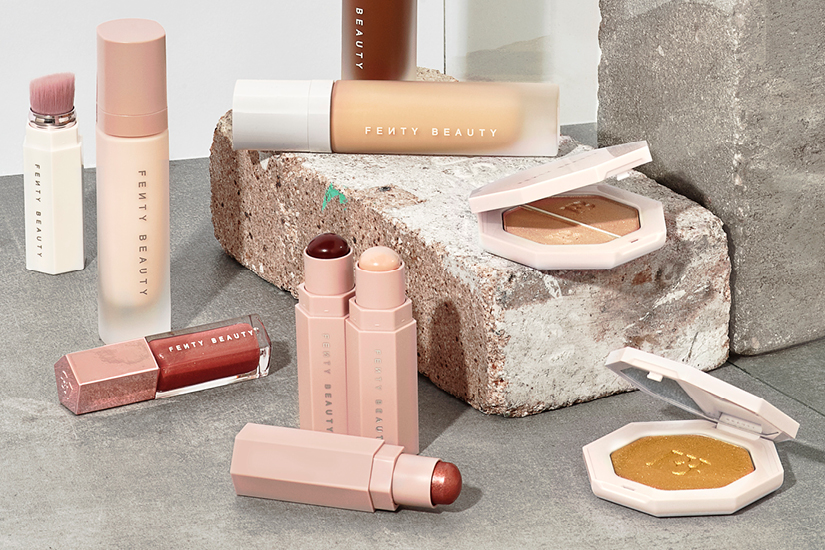
Fenty Beauty’s Lasting Legacy Fenty Beauty redefined the rules of the beauty industry. By creating products that work for everyone, irrespective of skin tone, gender, or ethnicity, and by using innovative marketing strategies to build a loyal global audience, Fenty Beauty didn’t just launch a successful business—it created a cultural movement. The brand’s impact on inclusivity has forced the entire beauty industry to rethink its approach to diversity, proving that makeup truly is for everyone.

Comments
Post a Comment